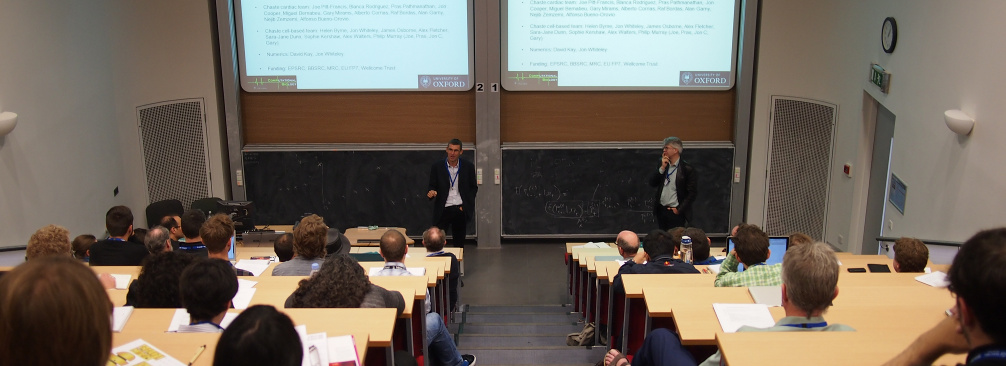The SoundSoftware 2012 Workshop
The SoundSoftware 2012 Workshop yesterday was a successful event, bringing together talks on software development and experience from the audio and music research field with best practice ideas from around the research world.

Above: David Gavaghan and Mark Plumbley
The programme opened with a questioning keynote from Cameron Neylon on the future of science and its progression from a craft-and-guild model to an integrated mesh of services.
We then had a sequence of talks on concrete software development practice from Paul Walmsley of Sibelius and David Gavaghan from Oxford University, both major proponents of unit testing and a test-first approach, as well as an outline of the Sound Software project's findings in the audio and music research field from Chris Cannam.
Following lunch and a tour of the Centre for Digital Music's facilities at Queen Mary, the next session included a pair of informative talks about the history and maintenance of the Auditory Image Model software from Roy Patterson and Thomas Walters with further ideas for managing collaborative development.
Bob L Sturm then gave a lively talk about the problems inherent in managing substantial databases of musical "ground truth" and their particular manifestation in a widely-used genre-classification data set. Also related to data was Steve Welburn's outline of the Centre for Digital Music's data management pilot project and its context in data lifecycles and the evolving requirements of funding bodies.
The final session focused on outreach and engagement, starting with an overview of the Is Recording Engineering? project from Jez Wells which uses software distribution as a way of engaging with a wider audience.
David De Roure spoke about reconstruction as a vital activity in the research world (and its place amongst other words beginning with R). Finally, a talk from Steve Crouch outlining the goals and work of the Software Sustainability Institute was followed by Mahendra Mahey discussing how to stimulate and involve "connected developers" in a horizontal structure across institutions and disciplines, through Dev8D and other DevCSI initiatives.
We will be updating this site with slides and media from the event during this week, so stand by. You might also like to check out the #ssww2012 Twitter hashtag for remarks from the attendees during the day!
